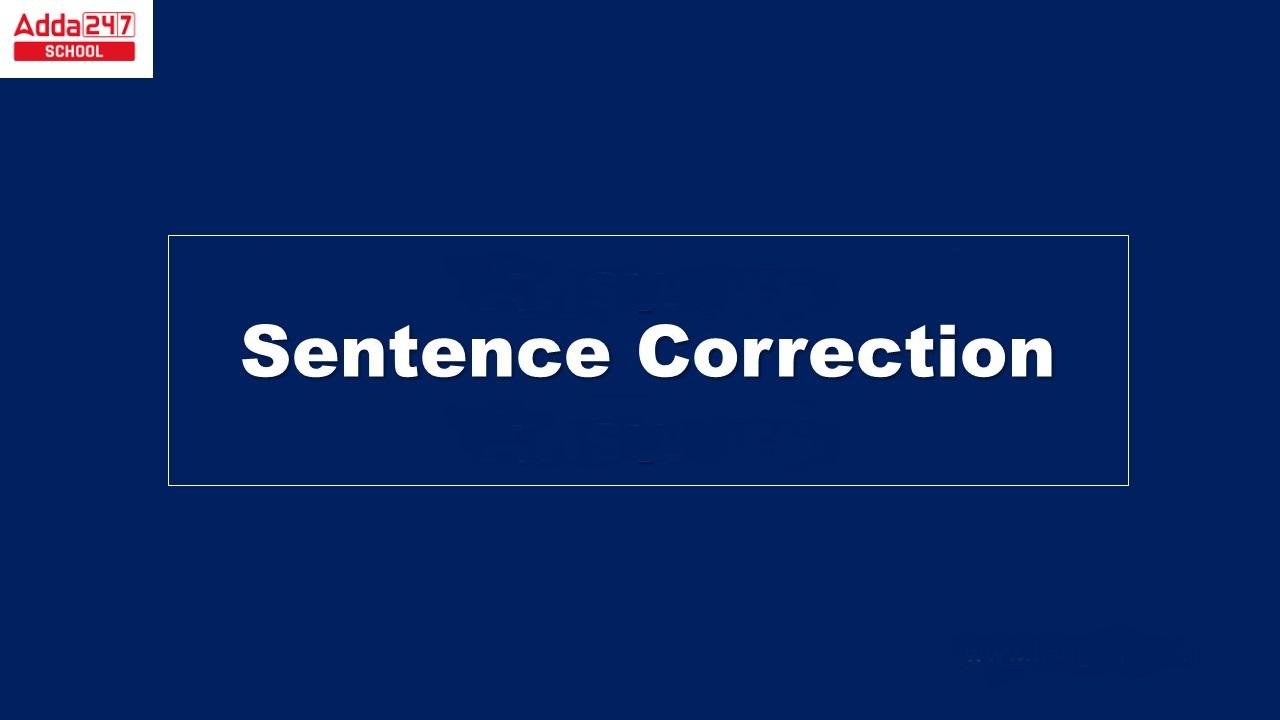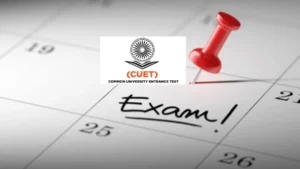Table of Contents
What is Sentence Correction?
The Sentence Correction technique that makes it possible to create a sentence with the right word order and that makes sense in its entirety is known as sentence correction. The act of rearranging the words to obtain a complete sense is referred to as sentence correction. A sentence is defined as a group of words put together in the proper order to demonstrate a complete meaning. For any phrase to have the intended meaning and follow appropriate grammar rules, the order in which words are used is crucial.
Sentence Correction Rules
Sentence Correction rules are given below.
Sentence Correction Rule 1
Rule 1: When using words like (kind of, sort of, type of, etc), it is not necessary to use the articles a/an or the.
Example:
Incorrect – What type of the books you like to read?
Correct – What type of books do you like to read?
Incorrect – What sort of an insect is that?
Correct – What sort of insect is that?
Sentence Correction Rule 2
Rule 2: Each of, One of, and None of sentences are followed by the plural form of the noun.
Examples:
Incorrect: Each of the player performed well in the match.
Correct – Each of the players performed well in the match.
Incorrect – None of the student scored above 90% in boards.
Correct – None of the students scored above 90 % in boards.
Sentence Correction Rule 3
Rule 3: The collective noun takes a plural verb when not used as a single unit.
Example:
Incorrect: The resources was divided based on its expertise
Correct: The resources were divided based on their expertise.
Sentence Correction Rule 4
Rule 4: Use Present Continuous tense rather than simple present tense, when the recurring action is confusing.
Example:
Incorrect: She always hits me without any reason
Correct: She is always hitting me without any reason
Sentence Correction Rule 5
Rule 5: If, in a sentence, two action clauses are to take place in the future, use simple present tense for conditional clause and simple future tense for the other clause.
Example:
Incorrect: The moment she will enter the room, we will start singing the birthday song
Correct: The moment she enters the room we will start singing the birthday song.
Sentence Correction Rule 6
Rule 6: For impossible past conditions, use past perfect and for its likely results use Would+Have+ 3 form of Verb. Past perfect is used for impossible past conditions.
Example:
Incorrect: If Jacob would have called me. I would have picked him up from the airport.
Correct: If Jacob had called me, I would have picked him up from the airport.
Sentence Correction Questions
For the correction of the sentences, the grammatical rules must be followed strictly and must not change the intended meaning of the sentence. Here are some examples of sentence correction with their corrected answers.
For example,
Q1. “She went to school despite of her illness” and the answer is “she went to school despite her illness”.
Q2. “Ramu, who he is my friend, is a singer.” The answer is “Ramu, who is my friend, is a singer.”
Q3. “No matter what that he do, he can’t make her happy.” The answer to the question is “No matter what he does, he can’t make her happy.”
Q4. “He is busy at the work and won’t be home before 12:30” and the answer is “He is busy at work and won’t be home before 12:30.”
Q5. “They have decided to quit their job a week ago.” and the answer is “They decided to quit their job a week ago.”
Q6. “He should complain of if he is not happy with the service he receive.” The answer is “He should complain if he is not happy with the service he receives.”
Directions: Select the correct option to replace the underlined part of the sentence given in the questions.
1. The President of Costa Rica, along with two vice presidents, are elected for a four-year term by the people.
- are elected for a four-year term by the people.
- are elected, by the people, for a four-year term.
- is elected for a four-year term by the people.
- are elected for four-year terms by the people.
- is elected for four-year terms by the people.
Here, the answer will be option 3 as it uses the correct subject-verb agreement rule that with “The President” the singular verb “is” will be used.
2. Previously thought to have been extinct, a team of biologists rediscovered the New Caledonia crested gecko in 1994.
- a team of biologists rediscovered the New Caledonia crested gecko in 1994.
- a team of biologists, in 1994, rediscovered the New Caledonia crested gecko.
- in 1994 the New Caledonia crested gecko was rediscovered by a team of biologists.
- and discovered by a team of biologists in 1994 was the New Caledonia crested gecko.
- the New Caledonia crested gecko was rediscovered by a team of biologists in 1994.
Sentence Correction Questions in English
Directions: In each of the following questions, find out which part of the sentence has an error. If there is no mistake, the answer is “no error”.
Q1: The road (a) / to famous monument (b) / passes through a forest (c) / No error (d).
Q2: Our housing society comprises of (a) / six blocks and (b) / thirty-three flats in an (c) / area of about thousand square metres. (d) / No error (e).
Q3: Now that she is living in her own flat, (a) / she cleans the windows, (b) / twice a week in the summer and once a week in the winter. (c)/ No error (d).
Q4: With little imagination and enterprise, (a)/ the tournament could have been transformed (b) / into a major attraction (c) / No error (d).
Q5: These display (a) / the (b) / remarkable variety. (c) / No error (d). [N.D.A.]
Q6: If you have faith in Almighty (a) / everything will turn out (b) / to be all right. (c) / No error (d).
Q7: According to the Bible (a)/ it is meek and humble (b) / who shall inherit the earth. (c) / No error (d).
Q8: I am not wealthy, (a)/ so I can not afford (b) / to buy a expensive car. (c) / No error (d).
Q9: Sunita opened a almirah (a) / full of books (b)/ and took one of them (c) / for reading. (d) / No error (e). (B.S.R.B 1992)
Q10: Most people would have (a) / attended the union meeting (b) / if they had (c) / had longer notice of it. (d) / No error (e)
Q11: My father is (a) / in bad mood (b0 / today. (c) No error (d).
Find Your Answers Here
Q1: (b), Q2: (d), Q3: (c), Q4: 9a), Q5: (b), Q6: (a), Q7: (b), Q8: (c), Q9: (a), Q10: (d), Q11: (b).



 CUET UG Date Sheet 2025 @cuet.nta.nic.in...
CUET UG Date Sheet 2025 @cuet.nta.nic.in...
 CUET Physics Chapter Wise Weightage 2025...
CUET Physics Chapter Wise Weightage 2025...
 UK, UP, MP, CBSE Board Result 2025 Live ...
UK, UP, MP, CBSE Board Result 2025 Live ...










